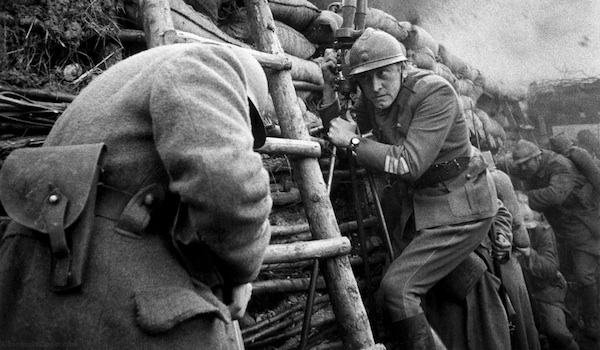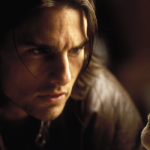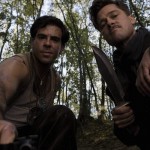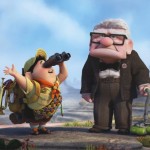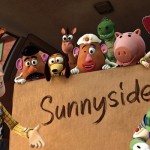Paths of Glory Review
Even the most fervent foreign policy hawks would likely have a hard time disputing the anti-war message in Stanley Kubrick’s Paths of Glory. The 1957 film, which really signaled the director’s arrival on the big stage, preaches without seeming too preachy, and horrifies while avoiding some potentially horrifying imagery. What’s frightening about Paths of Glory isn’t the amount of blood shed, but rather the attitudes and actions of the powerful few who get a little too much enjoyment and pride out of playing God with the men ranked below them. It’s an upstairs-downstairs story in so many ways, but one with higher stakes than you can imagine, and it’s filmed and crafted in a way that only a master director could do.
When General Paul Mireau (George Macready) is told by his superiors that he and his men could win the war for France by taking control of Ant Hill, he’s skeptical. It’s an impossible task, but one he—a proud military man—could never back down from. So he tells his best colonel, Dax (Kirk Douglas), to prepare his already worn-down men for one last fight. Dax knows it’s folly, but he’s also proud and quite aware that refusal isn’t an option. So just days after the order comes through, the battle begins—and it’s a slaughter. Some of Dax’s men never even make it out of the trenches, and of those that do, at least half are dead in minutes. Eventually, the survivors all retreat, and though they’ve fought gallantly for France in the past, they’re all called cowards by Mireau and the other generals. Someone needs to pay for the disgrace, so they choose three men to face official charges on the matter. The penalty if they’re found guilty: Death. So Dax prepares a defense while the three soldiers grapple with their seemingly inescapable fate.
It’s hard to say what’s more compelling here: The war scenes or the courtroom battle. For the first half of the film, you’re totally taken by Kubrick’s filmmaking abilities. His long takes through the trenches are now legendary, and the way he stages the actual fighting is way ahead-of-its-time. Once the film shifts gears to the court, it becomes more about the story. There’s a ton of suspense, as you wonder whether Dax can actually succeed in freeing these men, and as his plight becomes less and less hopeful, you’ll start to shake with anger at the audacity of some of the people in this film. Make no mistake: Paths of Glory is a message movie, and Kubrick wants to make sure you hear him loud and clear, no matter how difficult his thesis might be to swallow.
The film is no less impressive to look at as it shifts from the frontline to the jury box. The trial takes place in this sickeningly large and grandiose room that perfectly underscores the idea that those in charge are completely out of touch with reality. The head generals sit off to the side, above everyone, and rather than serve as witnesses, they sip cognac and chomp cigars. Dax paces the room, as angry as we are, while the defendants sit quietly as their unjustly judged. The whole thing is a marvel of pacing, blocking, set design, and camerawork.
Kirk Douglas is tremendous as the only sane and reasonable man of power in France. Dax is a heroic military figure, but a little deeper than most cinematic interpretations of this familiar archetype. His weariness to fight is apparent, despite being more than able to thrive on the battlefield. There’s also a naivete that’s not obvious at first, but comes up much later at a crucial moment. Shocked at the callousness of one of his superiors, he’s forced to make a choice that more or less punctuates Kubrick’s message. It’s fantastic work, and I don’t think the film would be the same without it.
Also exceptional is George Macready whose Mireau is a real bastard. The entire ensemble works; really, everything in the film works. Some will tell you the final scene is out of place, but I disagree completely. It’s a fitting way to end a pretty brutal movie. Would if I could find some fault, but Paths of Glory is a gorgeous war film with a clear message, great acting, and real emotional heft. You can’t ask for much more than that.

